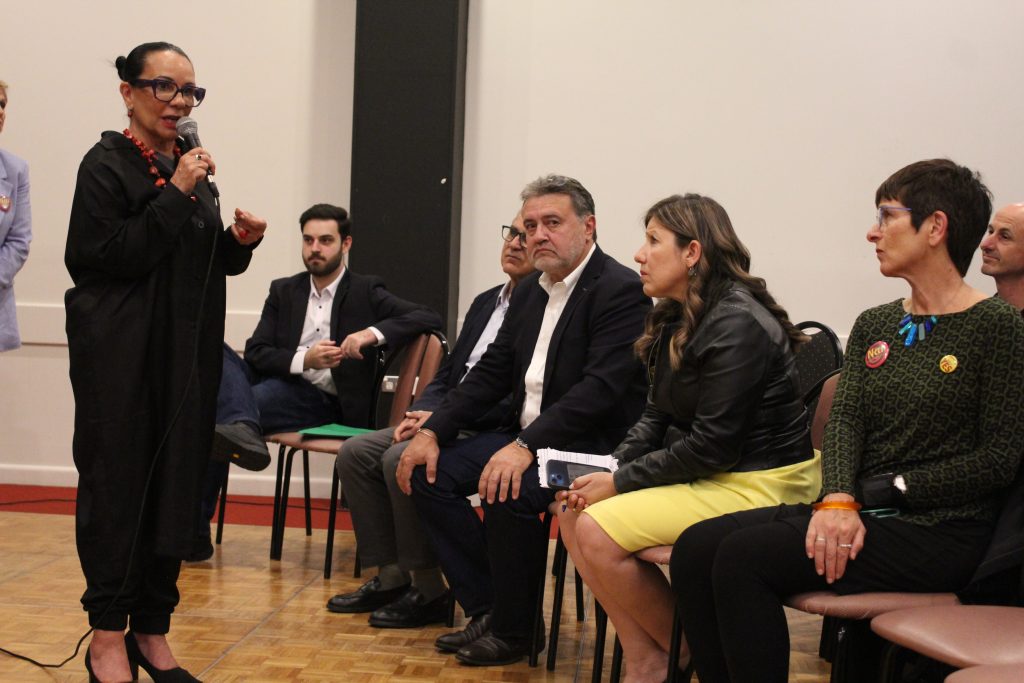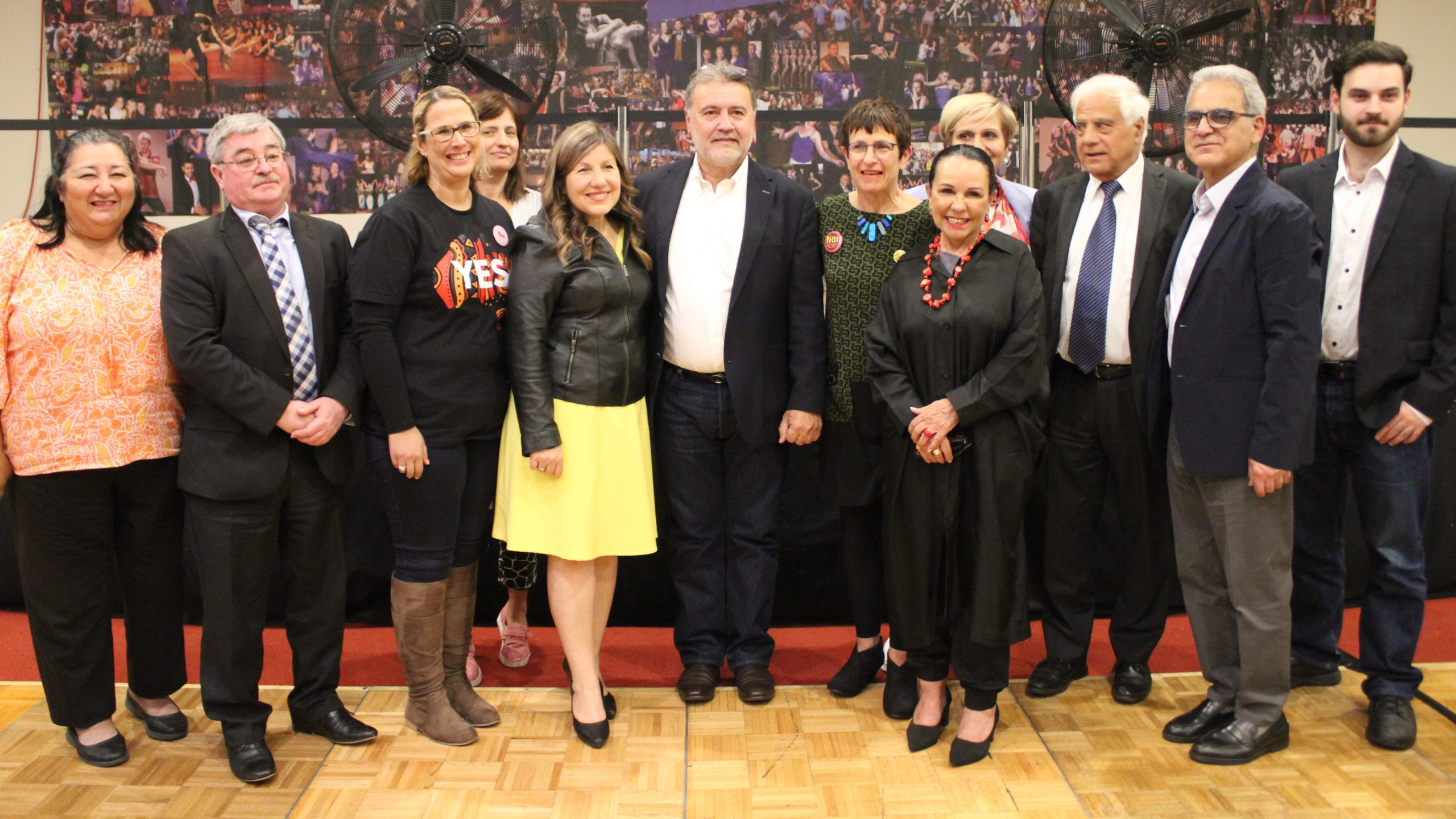There’s less than one week before Australians will vote on Saturday, October 14 in a referendum to enact an Indigenous Voice to the Federal Parliament. This short time frame has seen both camps – the ‘Yes’ and ‘No’ voters – ramp up their campaigns on the Voice.
In Sydney, New South Wales, the supporters of the ‘Yes’ vote had a chance to share their thoughts with the local Greek community during a public forum organised by the Greek Orthodox Community of NSW (GOCNSW) on Thursday, October 5 at the Cyprus Club in Stanmore.
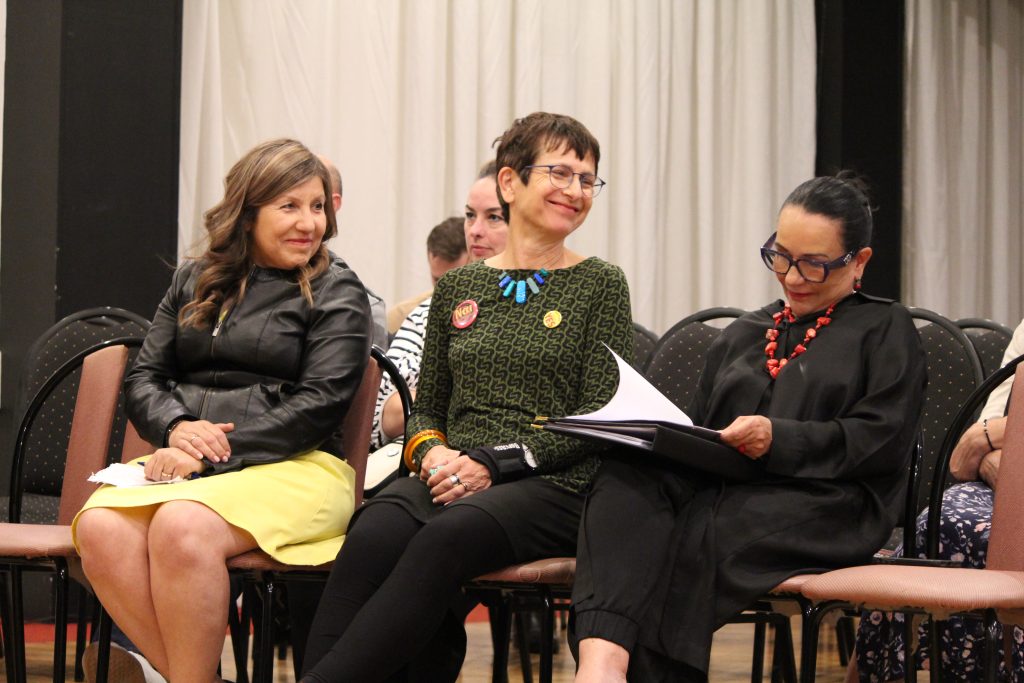
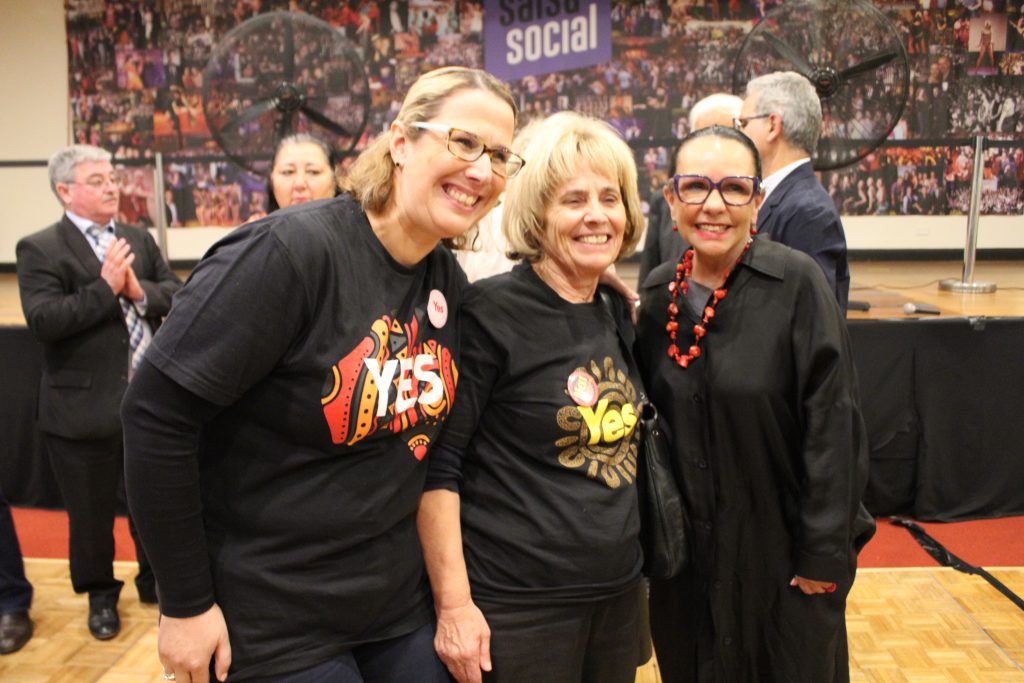
The GOCNSW has publicly endorsed the Indigenous Voice and invited a number of distinguished political and community leaders to speak at their forum in support of the ‘Yes’ vote.
Among the speakers were the Federal Minister for Indigenous Australians, Linda Burney MP; the NSW Minister for Industrial Relations, Work Health and Safety, Sophie Cotsis MP; the President of the NSW Teachers Federation, Angelo Gavrielatos; the President of the GOCNSW, Harry Danalis; the President of the Cyprus Community of NSW, Andrew Costa; and Greek Cypriot Australian filmmaker, Kay Pavlou. The event was emceed by Dimitri Kallos.
The first person to speak on the night was Mr Danalis, who stressed that the GOCNSW stands by its endorsement of the Voice.
“The Greek Orthodox Community of NSW have taken a stand on ‘yes’ and we’re not ashamed to take a stand. It’s a human rights issue, it’s an issue that the Aboriginal people deserve and we call upon the support of all Australians,” Mr Danalis said.
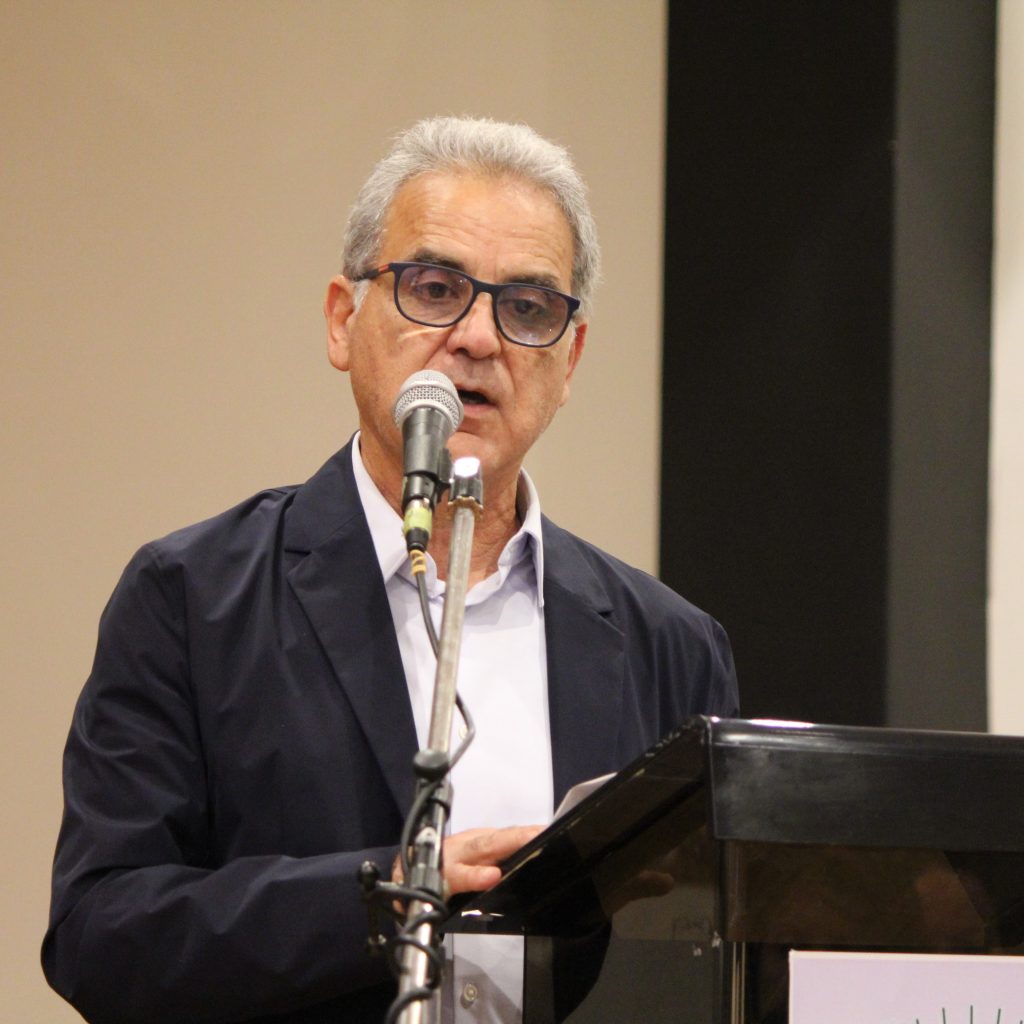
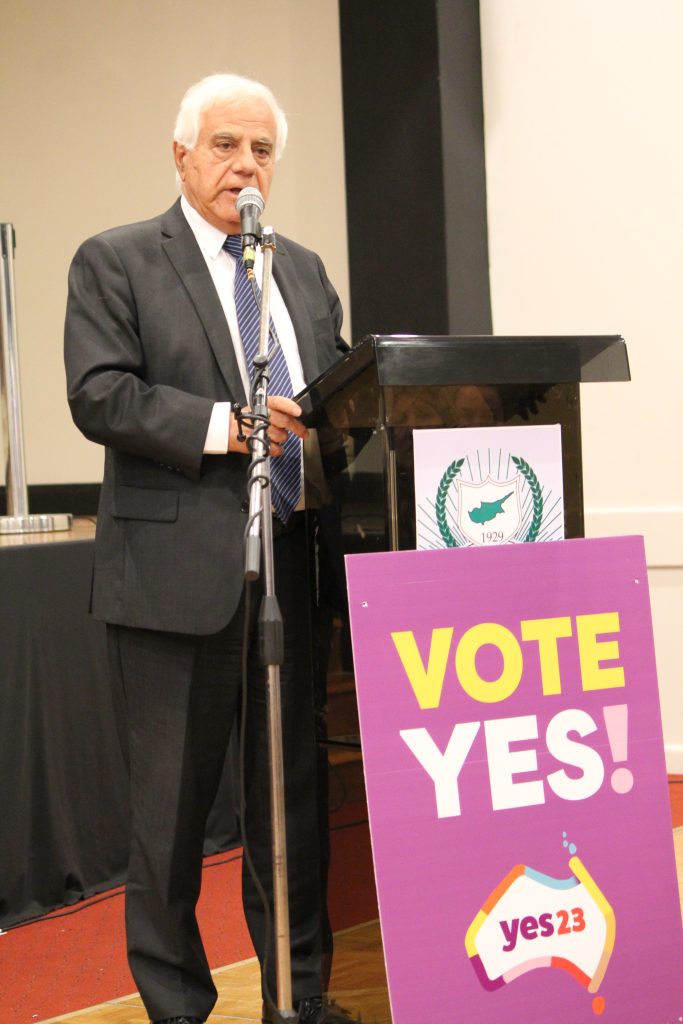
Mr Costa took to the podium next and emphasised that Cypriot Australians have a voice in Parliament and so it was time for Indigenous Australians to have one too.
“One of the criticisms that has come from the opponents of the Voice is, ‘why should one group of Australians have a voice, have access and plead their case?’,” Mr Costa asked.
“Well let me share this with you, we Australians of Cypriot origin have a voice, believe it or not. We have a major voice. We have many multicultural associations and many multicultural departments that help us.
“So that is not a just criticism. Other groups do have a voice, it just takes different formats.”
For her part, Ms Pavlou addressed the crowd in Greek and English and said it’s important to walk alongside Indigenous people “to help them save their culture and their people.”
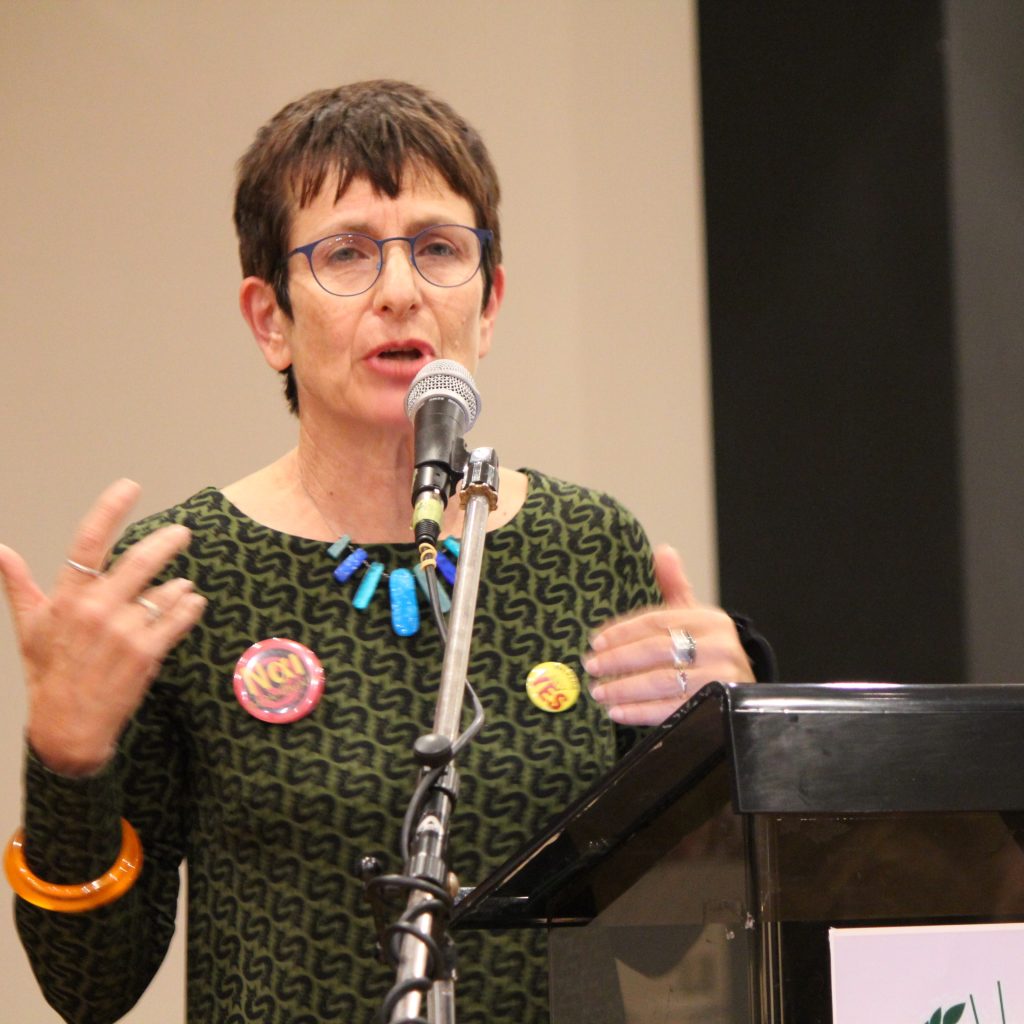
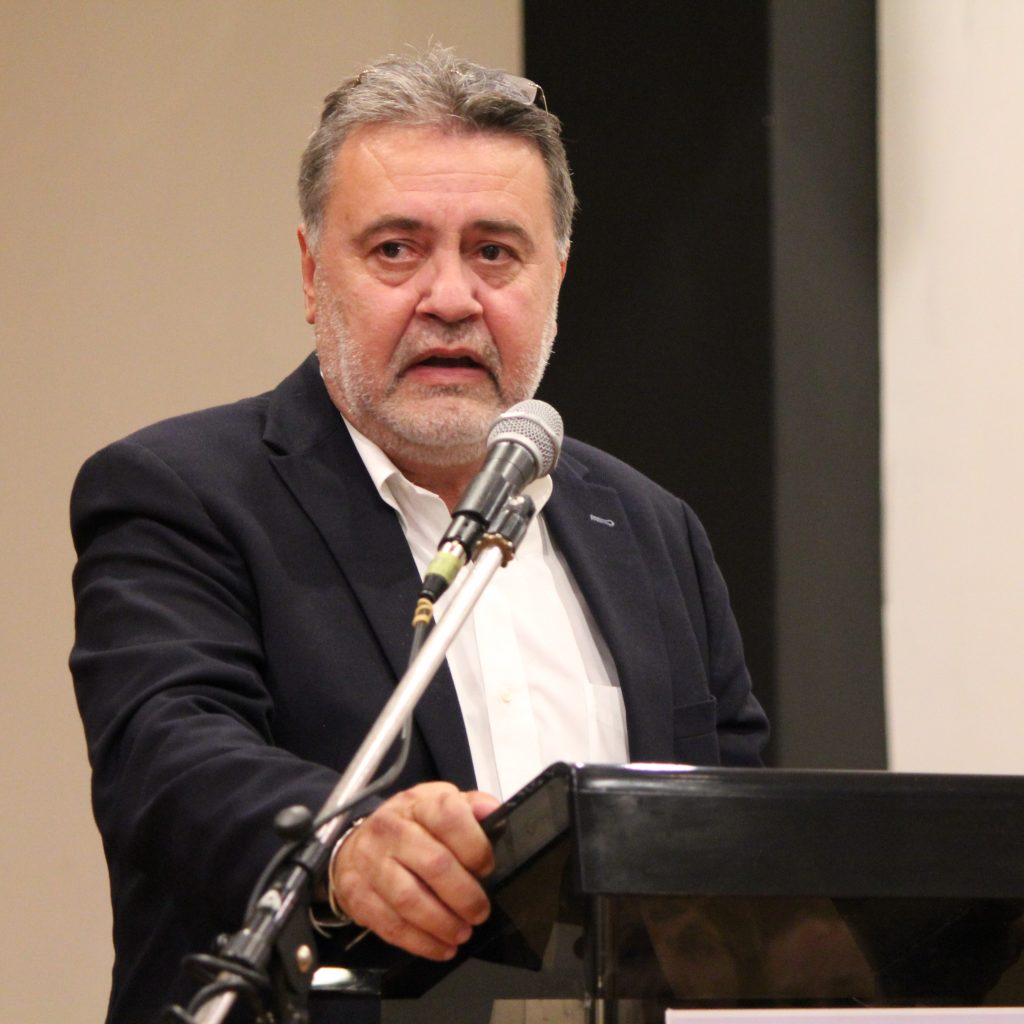
“In 1940, we used one word to change history,” Ms Pavlou added. “We said ‘no’ to Fascists. Mussolini did not enter Greece and we celebrate that every year on October 28. On October 14 this year, it’s our chance to say ‘yes’ and we can change the history of Australia.”
When it was time for Ms Cotsis to speak, she said the Voice referendum was about two things: filotimo (Greek form of hospitality / way of life) and listening to what Indigenous Australians are asking for.
“It [the Voice] is about our young, Indigenous brothers and sisters… it’s about giving them an opportunity, a chance, and that recognition is going to make a massive difference to the young people,” Ms Cotsis said.
In his first address to the Greek community in over 20 years, Mr Gavrielatos said the Voice was about “righting a historical wrong and creating space for a more hopeful future” for Indigenous Australians. He also called on people to tap into their Greek values.
“I spent a lot of time in the Greek community when I was young. There was a lot of people around me who instilled in us certain values and those values are very important and dear to Greek people – a sense of history, truth and justice,” Mr Gavrielatos stressed.
“If you want guidance with respect to what to do on October 14, dig into your Greek tradition of a sense of history, truth and justice, and there is only one answer and that is to vote ‘yes’.”
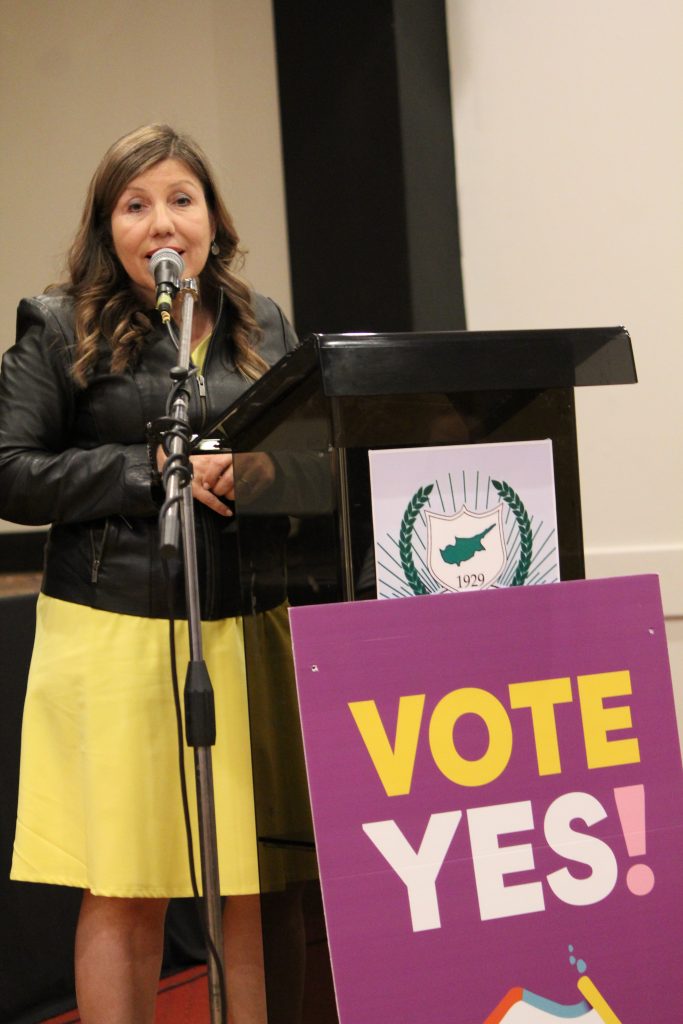
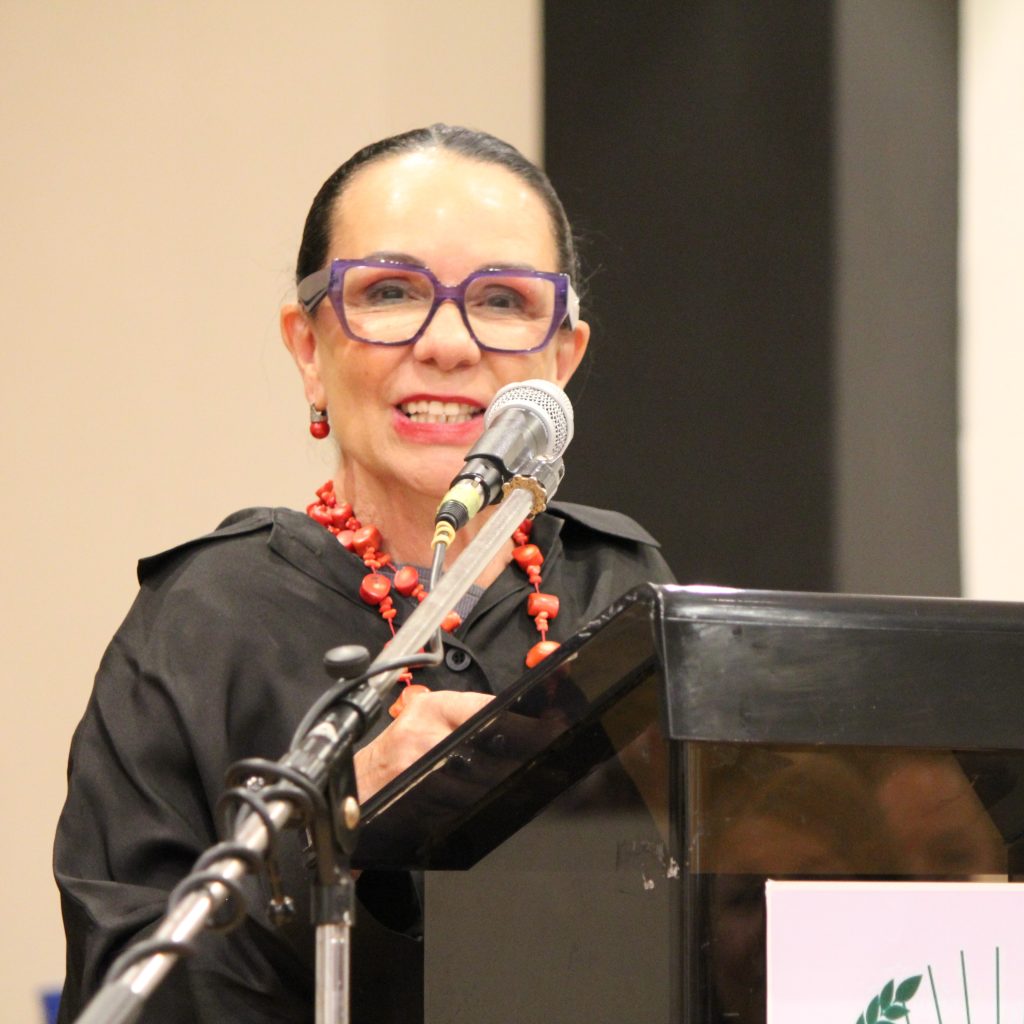
The public forum ended with Ms Burney addressing the audience as Federal Minister for Indigenous Australians. In her speech, she explained the importance of the Voice and expressed her admiration for the Greek community in Australia.
“The thing that I have admired so much about the Greek community is the way they value story and culture and language and the importance of sharing that with your children,” Ms Burney said, while explaining she had to consult a dictionary from a Greek anthropologist to name her children in the Wadjarri language.
“Language is the mirror to your soul and it is through things like the Voice and recognition that we can see our soul again.”
At the conclusion of the speeches, there was a Q&A session and an official group photo.
